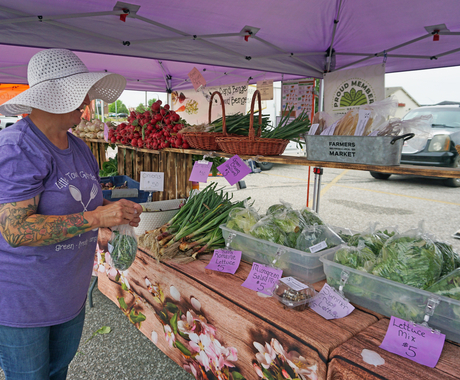Printed in the Lincoln Journal-Star on Sunday, Feb. 12.
Income taxes on high earners must rise.
There, I said it. I said the one thing no one in Nebraska politics can bring themselves to say.
Property taxes in the state are too high. Everyone agrees on this. The problem has mounted for years. We’ve accomplished little to address it.
Modernizing our sales tax is part of the solution. Closing the internet sales tax loophole and ending sales tax exemptions on services such as chartered flights, interior design, and storage and moving are smart proposals. These changes will generate between $50 million and $200 million in new revenue that could be used to provide property tax relief.
We support these changes, but it's not enough to balance the 3-legged stool of Nebraska taxes.
The Center for Rural Affairs has long held that Nebraska tax revenue should be equally balanced between property, sales and income tax.
Today, the property tax leg of the stool is too long, reflecting 36 percent of state revenue. Meanwhile, the income tax leg of the stool is too short, reflecting 26 percent of state revenue. Sales tax accounts for 30 percent, and 8 percent comes from other sources.
Reshuffling the deck between property tax and sales tax won’t get the job done. It leaves the state overly dependent on property and sales tax.
But rather than considering income tax increases on top earners, the Legislature is actually debating cutting income taxes for these earners. Legislative Bill 337 would reduce the top income bracket from 6.84 percent to 5.99 percent. The more a taxpayer earns, the larger their tax cut will be.
This proposal will put additional strain on Nebraska’s budget, undercut state services, and make it difficult to reform property tax.
To truly tackle property tax reform, we need to look at income tax increases for top earners. This starts with expanding the number of brackets we use to calculate income tax.
Nebraska has just four tax brackets. This means middle class households in the state pay the same top tax rate as the highest earners in the state. The top rate of 6.84 percent is applied to income over $36,000 for an individual and $72,000 for a married couple.
This compressed tax bracket structure ensnares middle income earners in the same bracket as those who earn much much more. That’s not fair.
For comparison, Iowa has nine brackets. That makes more sense.
Nebraska needs another tax bracket for high income earners. By adding another bracket, we can target an income tax increase to high income earners who can most afford it.
The whole package can be revenue neutral so that there is no effective increase in taxes or spending. The result would be lower property taxes and a more well-balanced revenue stool for the state.
Farmers and ranchers, in particular, would pay their fair share when their incomes are high, and see immediate relief when the farm economy slumps.
Sadly, this option seems unlikely to win favor in Lincoln. In the face of a looming budget deficit and too high property taxes, political leaders in the state are instead pushing their proposal to cut income taxes for top earners.
This strategy will leave us unable to address property taxes in a meaningful way, and raises the threat of steep shortfalls for education, corrections and health services.
To create a strong and sustainable future for Nebraska, we must find the political courage to look at our entire tax system — property, sales and income tax — in a holistic way.



